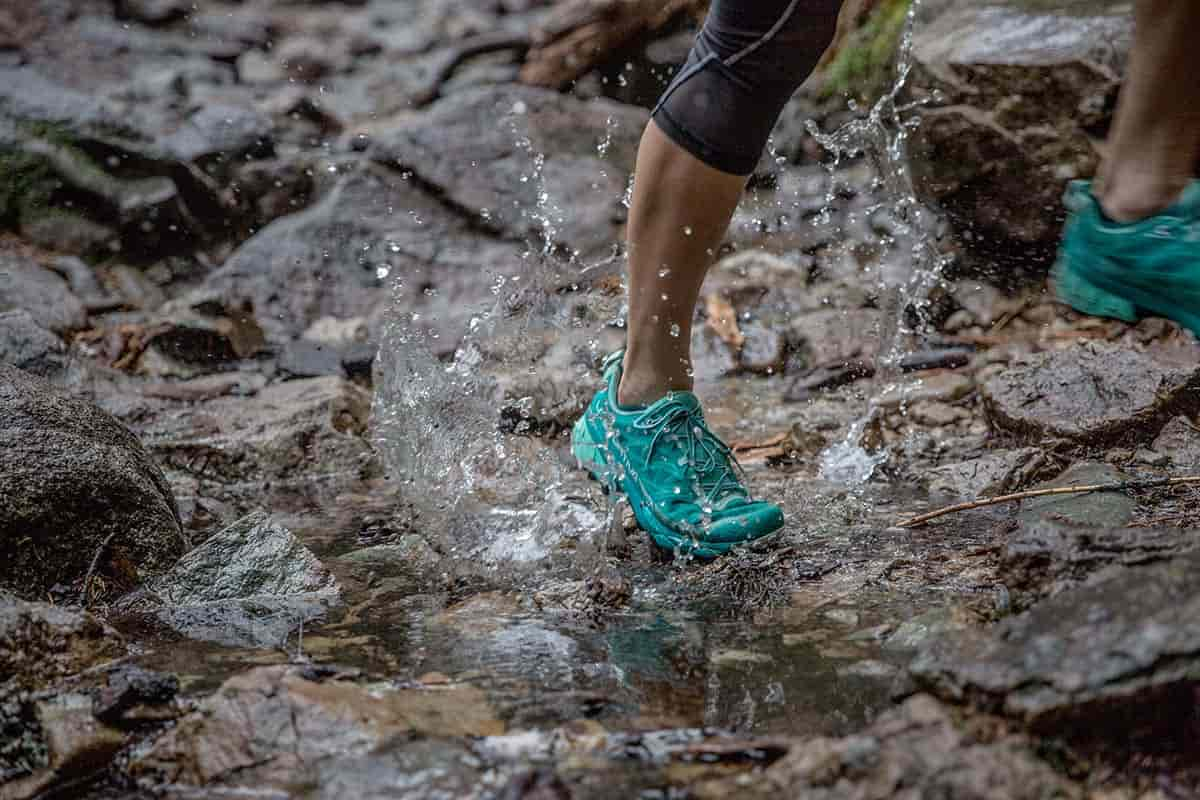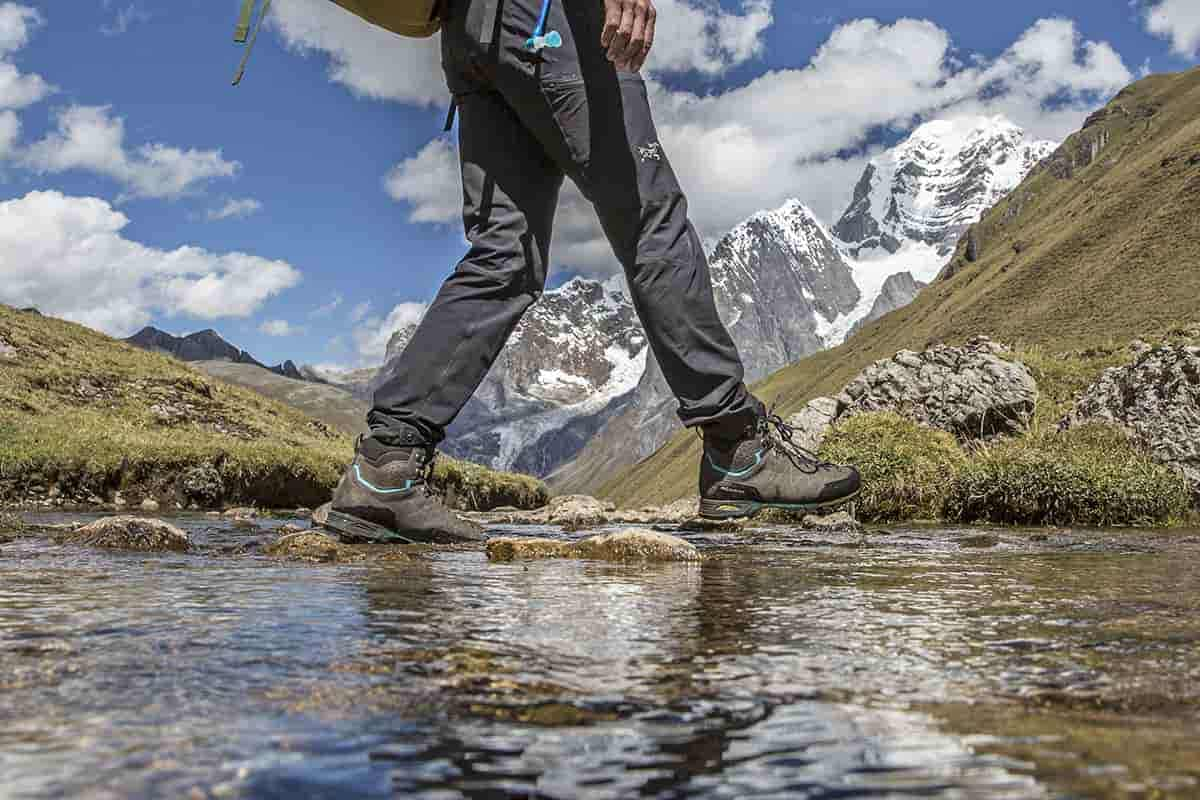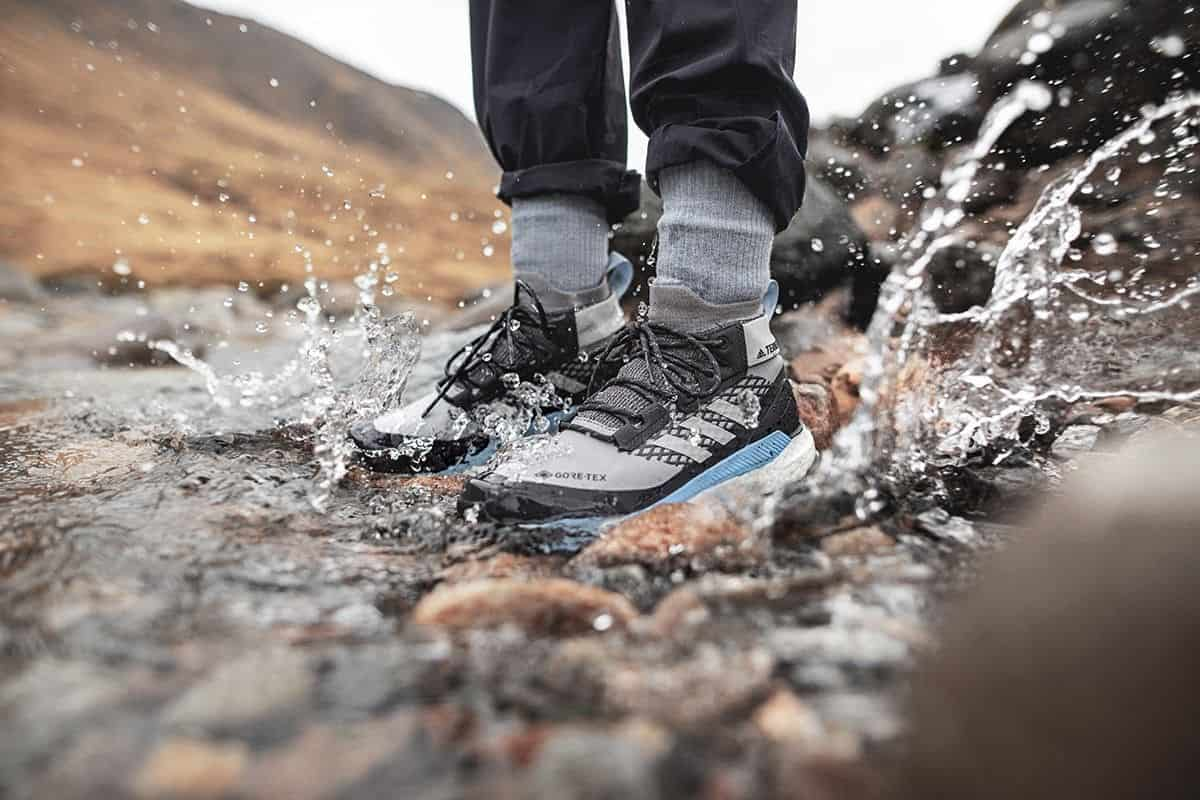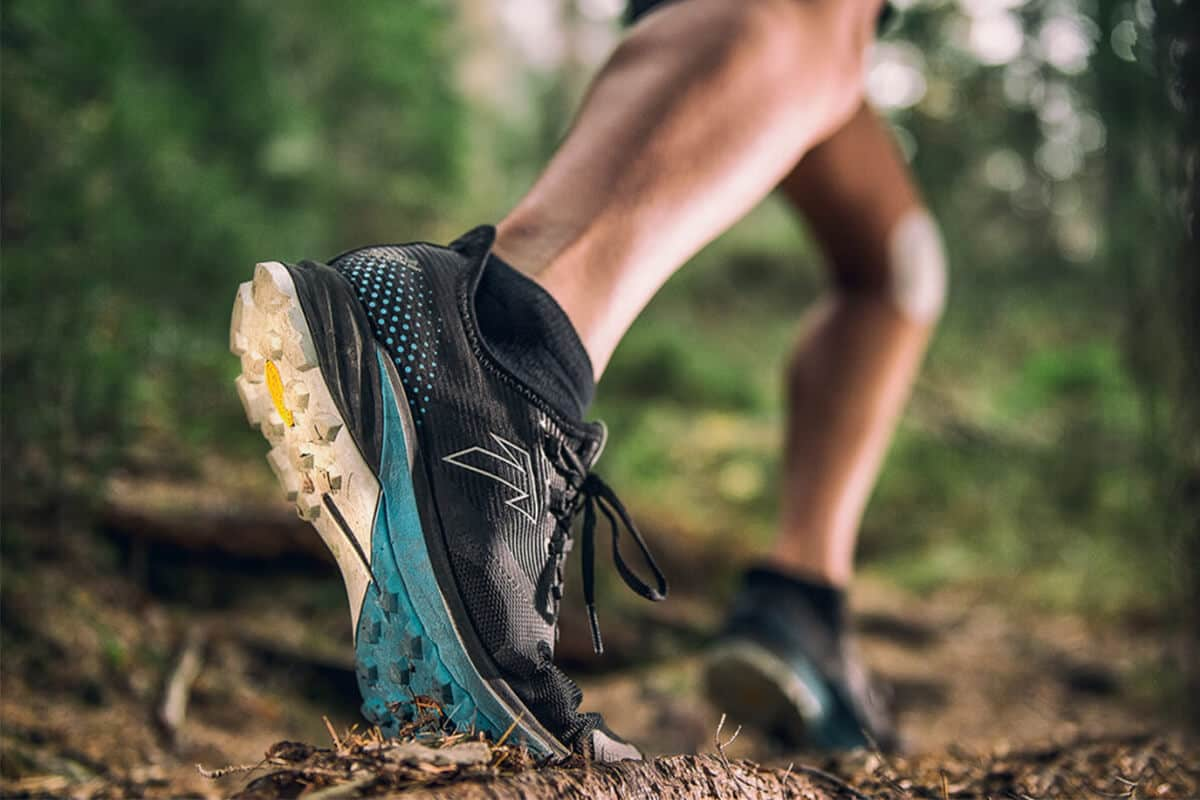Waterproof running shoes are your best friends on rainy days. In fact, on those days when the trails are wet, running can be a really dirty experience. For you to avoid such experiences, a pair of waterproof shoes can do the trick. On rainy days, the normally well-behaved surface deteriorates into a sludge fest, and each footstrike spreads muck all over the surrounding area. On your lower limbs, running clothes, socks, and everything else that is less than one meter away from the surface of the ground. The most pressure is exerted on the shoes. Even a short trail run of thirty minutes after a rain shower may alter the appearance of the shoe; the midsole and top mesh get coated with splotches of clay. However, this is not the primary issue at hand. Any trail running shoe will become soiled very fast since mud and muck are an inevitable part of the sport. In the end, it's all just surface-level. On the other hand, if water gets into the shoe, then things are going to become uncomfortable. The socks will soak up the water, and having wet feet while jogging is one of the most miserable things that can happen. Although the majority of trail running shoes provide some degree of protection against dirt and debris, it is not possible to say the same about their waterproofing capabilities. The uppers of trail running shoes include closed mesh that is not waterproof so that the feet may breathe more easily. A waterproof gaiter is helpful, but it does not protect the forefoot, which is the most common location where water may get in.  As a result, your only choice is to get a pair of trail running shoes that has a membrane that is waterproof. Gore-Tex is used by the vast majority of notable companies, but alternative types of waterproofing are provided by a handful of those businesses. The following is a concise summary of the factors that contribute to the overall superiority of a shoe that is waterproof. Keep an eye out for the Gore-Tex label When it comes to waterproofing, Gore-Tex is the material of choice. There is something to be said about a firm whose only purpose is to provide the footwear and sportswear industries with watertight materials. Since the 1970s, this has been their area of expertise, and they have developed it into an art form in that time. In addition to being waterproof, the membrane's porosity allows any accumulated moisture to evaporate. To put it another way, the holes in the membrane are too tiny to allow water to pass through them, yet they are big enough to enable water vapor to pass through. In the past, a Gore-Tex membrane would typically be somewhat thick, which would cause the top fit to be quite constricting. That's not the case anymore, however. On this website, we have tested various pairs of shoes that are waterproofed with Gore-Tex, and not one of them had a tight or constricting fit.
As a result, your only choice is to get a pair of trail running shoes that has a membrane that is waterproof. Gore-Tex is used by the vast majority of notable companies, but alternative types of waterproofing are provided by a handful of those businesses. The following is a concise summary of the factors that contribute to the overall superiority of a shoe that is waterproof. Keep an eye out for the Gore-Tex label When it comes to waterproofing, Gore-Tex is the material of choice. There is something to be said about a firm whose only purpose is to provide the footwear and sportswear industries with watertight materials. Since the 1970s, this has been their area of expertise, and they have developed it into an art form in that time. In addition to being waterproof, the membrane's porosity allows any accumulated moisture to evaporate. To put it another way, the holes in the membrane are too tiny to allow water to pass through them, yet they are big enough to enable water vapor to pass through. In the past, a Gore-Tex membrane would typically be somewhat thick, which would cause the top fit to be quite constricting. That's not the case anymore, however. On this website, we have tested various pairs of shoes that are waterproofed with Gore-Tex, and not one of them had a tight or constricting fit.  For instance, the upper of the Brooks Cascadia 16 GTX and the Nike Pegasus Trail 3 GTX are both water-resistant, but they are very lightweight and flexible. That's what we call the Gore-Tex "Invisible Fit," by the way. As a side note, you should know that some of the other Gore-Tex varieties are ridiculously thin. The GTX Active Shakedry on a bike jacket is seen here; this ultra-thin and very lightweight garment can be folded up to the point that it fits within the palm of an adult's hand. A geometry-based outsole featuring a wet-grip traction pattern. When the paths are wet, the terrain will be slippery. Running on terrain that is often wet and muddy requires more than simply a pair of shoes with a waterproof covering. It is essential for the outsole to have the proper sort of compound as well as lug geometry. The good news is that a good number of waterproof trail running shoes are equipped with deep lugs and outsoles that are designed to be friendly to wet surfaces. In this guide, we have only included outsole patterns that provide an advantage while walking on muddy ground. For instance, Saucony's SpeedCross 5 GTX has lugs made of soft Pwrtac, while Salomon's SpeedCross 5 GTX also features a similar material. However, regardless of how excellent it is, the traction will diminish on surfaces such as slippery clay, hard ice, or boulders covered in algae.
For instance, the upper of the Brooks Cascadia 16 GTX and the Nike Pegasus Trail 3 GTX are both water-resistant, but they are very lightweight and flexible. That's what we call the Gore-Tex "Invisible Fit," by the way. As a side note, you should know that some of the other Gore-Tex varieties are ridiculously thin. The GTX Active Shakedry on a bike jacket is seen here; this ultra-thin and very lightweight garment can be folded up to the point that it fits within the palm of an adult's hand. A geometry-based outsole featuring a wet-grip traction pattern. When the paths are wet, the terrain will be slippery. Running on terrain that is often wet and muddy requires more than simply a pair of shoes with a waterproof covering. It is essential for the outsole to have the proper sort of compound as well as lug geometry. The good news is that a good number of waterproof trail running shoes are equipped with deep lugs and outsoles that are designed to be friendly to wet surfaces. In this guide, we have only included outsole patterns that provide an advantage while walking on muddy ground. For instance, Saucony's SpeedCross 5 GTX has lugs made of soft Pwrtac, while Salomon's SpeedCross 5 GTX also features a similar material. However, regardless of how excellent it is, the traction will diminish on surfaces such as slippery clay, hard ice, or boulders covered in algae.  Finally, if the conditions are appropriate, you should use a gaiter. Attaching an aftermarket gaiter significantly improves the odds of the feet being dry, provided that the trail running shoe in question does not come equipped with a gaiter that is both built-in and waterproof. Because wearing a gaiter might cause you to overheat, protecting yourself from the elements with a waterproof cover during the summer may not be the best choice. When it comes to running shoes, we advise going with the Kahtoola Levagaiter Mid GTX. The midsole can be wrapped around quickly and easily thanks to the thin strap, and the TPU hook can be attached to the D-ring on the shoe. Some trail shoes are not designed to be worn with gaiters; for instance, the Nike Pegasus Trail 3 and the Salomon Speedcross 5 do not come equipped with a D-ring. The Salomon Speedcross 5 GTX comes highly recommended by Solereview. As of the time this review was written, we consider the Salomon Speedcross 5 GTX to be the most effective and versatile waterproof trail running shoe available. The Speedcross has a wide range of capabilities in addition to its water resistance. This is the only shoe in this book that has a construction that utilizes two separate lasts. The midsole of these running shoes, in contrast to the midsoles of most other running shoes, is completely concealed by the top. This makes it possible for the EVA foam midsole to be thinner while yet being flush with the top edge. As a result, the stability and fit security are both improved. A unique heel midsole that hugs the foot on both sides, as well as an Ortholite insole that offers a softer cushioning layer, are both included in the shoe. Because of this, the ride has the quality of being cushioned while yet being conducive to speed.
Finally, if the conditions are appropriate, you should use a gaiter. Attaching an aftermarket gaiter significantly improves the odds of the feet being dry, provided that the trail running shoe in question does not come equipped with a gaiter that is both built-in and waterproof. Because wearing a gaiter might cause you to overheat, protecting yourself from the elements with a waterproof cover during the summer may not be the best choice. When it comes to running shoes, we advise going with the Kahtoola Levagaiter Mid GTX. The midsole can be wrapped around quickly and easily thanks to the thin strap, and the TPU hook can be attached to the D-ring on the shoe. Some trail shoes are not designed to be worn with gaiters; for instance, the Nike Pegasus Trail 3 and the Salomon Speedcross 5 do not come equipped with a D-ring. The Salomon Speedcross 5 GTX comes highly recommended by Solereview. As of the time this review was written, we consider the Salomon Speedcross 5 GTX to be the most effective and versatile waterproof trail running shoe available. The Speedcross has a wide range of capabilities in addition to its water resistance. This is the only shoe in this book that has a construction that utilizes two separate lasts. The midsole of these running shoes, in contrast to the midsoles of most other running shoes, is completely concealed by the top. This makes it possible for the EVA foam midsole to be thinner while yet being flush with the top edge. As a result, the stability and fit security are both improved. A unique heel midsole that hugs the foot on both sides, as well as an Ortholite insole that offers a softer cushioning layer, are both included in the shoe. Because of this, the ride has the quality of being cushioned while yet being conducive to speed.  Despite the fact that the midsole does not have a conventional rock shield, a TPU film provides protection from pebbles and roots. The lugs feature a wide spacing between them, which provides great grip and helps prevent clogging. The top is constructed with many layers of synthetic material, which, due to the design, renders the outside protective, waterproof, and simple to clean. The bungee cord lacing may be easily tightened despite the large gusset that prevents moisture and dirt from entering. Because the forefoot does not have a D-ring, this item cannot be used with a gaiter. Because the Speedcross 5 GTX might be difficult to locate at times, we have compiled a list of seven more waterproof trail running shoes that get good marks from us. The list has been arranged in the order of our choices.
Despite the fact that the midsole does not have a conventional rock shield, a TPU film provides protection from pebbles and roots. The lugs feature a wide spacing between them, which provides great grip and helps prevent clogging. The top is constructed with many layers of synthetic material, which, due to the design, renders the outside protective, waterproof, and simple to clean. The bungee cord lacing may be easily tightened despite the large gusset that prevents moisture and dirt from entering. Because the forefoot does not have a D-ring, this item cannot be used with a gaiter. Because the Speedcross 5 GTX might be difficult to locate at times, we have compiled a list of seven more waterproof trail running shoes that get good marks from us. The list has been arranged in the order of our choices.
💰 Tenfold your income 💎
